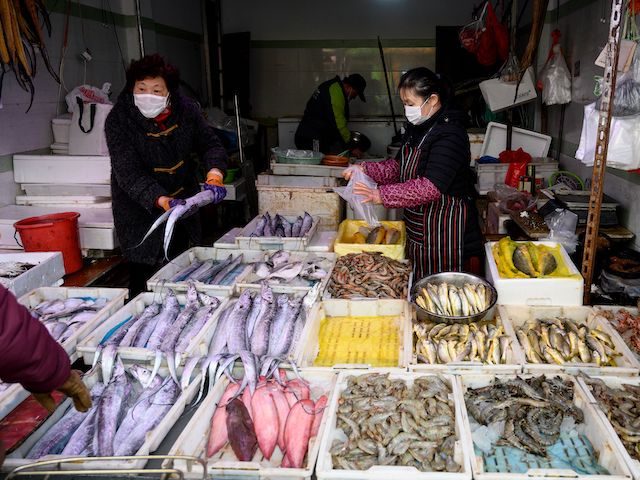At a press briefing on Wednesday, World Health Organization (W.H.O.) investigator Peter Daszak said he expected the origins of the Wuhan coronavirus pandemic would be determined “fairly soon, within the next few years.”
Daszak was referring to the “origin” of the pandemic as the moment when it jumped from animals to humans. As quoted by the Associated Press (AP), he seemed confident this happened somewhere near Wuhan, China, despite persistent efforts by the Chinese Communist Party (CCP) to make W.H.O. pretend the virus might have come from somewhere else:
“There was a conduit from Wuhan to the provinces in South China, where the closest relative viruses to (the coronavirus) are found in bats,” said Daszak, the president of the New York based group, EcoHealth Alliance.
He said the wildlife trade was the most likely explanation of how Covid-19 arrived in Wuhan, where the first human cases were detected.
That hypothesis, Daszak said, is “the one that’s most strongly supported both on the WHO (and) the China side”. Daszak and his co-authors are set to release a report as early as next week, on the initial conclusions of their recent mission to Wuhan.
More specifically, Daszak explained to AP the “most likely scenario” is that animals infected with a progenitor of the Chinese coronavirus were sold at the Huanan wet market in Wuhan. Daszak said the W.H.O. team was fairly certain animals capable of carrying the coronavirus or a closely related disease were sold at the market.
The CCP has insisted W.H.O. investigate bizarre theories that the Wuhan coronavirus originated in another country and was spread to China somehow – perhaps by American soldiers bringing it from a U.S. bio-weapons lab to Wuhan during military exercises, or by Europeans sending it to China in frozen food packages.
Another W.H.O. investigator, Marion Koopmans, said the team still maintains it is “extremely unlikely that there was a lab accident” in Wuhan that unleashed the coronavirus, even though other W.H.O. officials have recently seemed less confident in ruling out the Wuhan Institute of Virology as a source.
Koopmans said W.H.O. seriously considered the frozen-foods theory and “cannot completely rule it out,” even though most scientists worldwide have dismissed it.
W.H.O. is under intense pressure to demand a new, more open investigation of Wuhan because Chinese officials were not fully cooperative with Daszak’s expedition. The Chinese inexplicably withheld vital source data about the early days of the pandemic, insisting W.H.O. make do with analysis and conclusions from Chinese scientists. The Chinese are extremely unlikely to agree to another investigation, especially if it includes a healthy complement of scientists who do not work for W.H.O., as some scientists across the world have suggested.

COMMENTS
Please let us know if you're having issues with commenting.